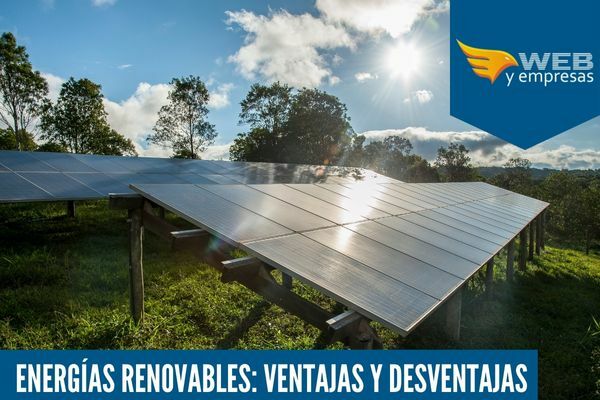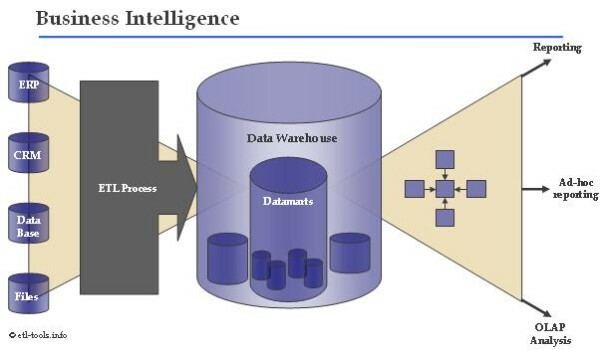Renewable energies are produced from natural sources that can naturally regenerate over time, or are found naturally. unlimited on the planet, and do not emit polluting waste, being also sustainable energy, which, although they have great advantages, also have their downsides. disadvantages.
The renewable energy have become a hope to create sustainable energy that reduces or counteracts the devastating effects of climate change; In addition, its natural ability to regenerate at a faster rate than its consumption allows us to ensure inexhaustible energy sources for future generations.

Advertisements
These energies generate benefits for the planet and humanity, providing great advantages, although it also has its disadvantages; Let's see what they are, in the following table:
|
Advantages Advertisements |
Disadvantages |
| Reduces pollution levels. | Its installation could negatively affect the flora and fauna. |
| They are obtained from inexhaustible and free natural sources. | Its extraction and installation is more expensive, it requires a strong initial investment. |
| They generate more sources of work than other types of energy. | It requires a large physical space for its installation. |
| Increases energy security. | Not all geographical areas have the ideal conditions to take advantage of this energy. |
| It favors technological development. | It requires highly specialized technology, difficult to access for the poorest nations. |
Advertisements
As can be seen in the comparative table of advantages and disadvantages, these are energies that have points for and against; However, what is certain is that generate less negative impact than other non-renewable energy sources.
To better understand what they are about, let's define what renewable energies are and what they are, and delve a little deeper into their advantages and disadvantages.
Advertisements
In this article you will find:
What are renewable energies?
The Renewable energies are those that are obtained from renewable natural resources, such as the sun, waves, wind and biomass.; Unlike non-renewable energy sources that use fossil fuels, renewable energy uses natural sources that they can be regenerated, or they are unlimited.
Renewable energies from natural sources that can be used or consumed on a large scale, which do not affect their available quantity, since they are inexhaustible; however, renewable energies whose natural source is biomass require a process natural to regenerate, so its quantity is affected if consumed at a very high rate. accelerated.
Advertisements
What are renewable energies?
Renewable energies are:
- The solar energy, whose source is solar radiation.
- The wind power, is produced by the kinetic energy of wind; that is, the force in the movements of the wind.
- tidal and wave energy, both are the product of the kinetic energy of the sea, the first is the product of the movements in the changes of the tide, and the second is the product of the movements in the waves of the sea.
- The geothermal energy, produced by the heat inside the earth.
- The hydraulic energy, this energy is the product of the movement of water when it is dropped by the force of gravity, from elevations or great heights.
- bioenergy, is produced from the combustion of biodegradable organic materials of animal and vegetable origin, called biomass.
5 Advantages and disadvantages of renewable energy
The advantages and disadvantages that can be highlighted of these renewable energies are the following:
5 Advantages:
Reduces pollution levels: For the most part, this type of energy does not generate emissions of (CO₂), or other polluting gases, in the case of biomass, its combustion process does release (CO₂), but at very low levels, compared to other types of energy, it does not renewable.
Hence, their low levels of pollution make them sustainable alternatives to combat climate change, being clean energy, friendly to the environment.
They are obtained from inexhaustible and free natural sources: Renewable energies are extracted from natural sources, unlimitedly available to man. to satisfy their needs, their abundance is so great that raw materials are freely accessible and gratuitous.
Its costs are derived from the process of extraction and transformation of its natural state to generate energy and distribute it, but not from the raw material as such, solar radiation, wind, waves, etc
It generates more sources of work than other types of energy: The labor demand in the renewable energy sector is increasing, with professional technical profiles being the most in demand in sector, international organizations estimate that with the new trend of energy transition to generate energy and combat change change, significantly increase the sources of employment in the coming decades, if countries choose to implement this transition.
Increase energy security: renewable energy can be obtained through different natural sources, offering countries the necessary means to guarantee the supply of energy to the population and avoid shortage.
Promotes technological development: This type of energy, due to its unlimited quality and ability to combat climate change, has led to the development of new Technological developments to take advantage of the potential of these resources, through more efficient and less invasive methods for the atmosphere.
5 Disadvantages:
Its removal and installation can negatively affect flora and fauna: Although they do not generate polluting waste, many of them involve extraction and installation processes that can harm the flora and fauna of the place; In the case of tidal and wave energy, it affects the marine ecosystem, and wind farms interfere with the flight of birds.
Its removal and installation is more expensive, and requires a strong initial investment: To make the transition to renewable energy, large sums of money are required to invest in specialized equipment and technology, as well as highly trained personnel for its installation and maintenance.
It requires a large physical space for its installation: In order to generate renewable energy on a large scale, large tracts of land are necessary, or within the sea, so it is not possible to install them in urbanized areas, or in places in the sea where there is traffic maritime.
Not all geographical areas have the ideal conditions to take advantage of this energy: Well, mostly renewable energies are affected by the weather conditions and the geography of the place; in the case of wind energy requires constant sunlight or summer throughout the year, the fields Wind farms require strong and constant air currents, and the same with other energy sources renewable.
It requires highly technical technology, difficult to access in the poorest nations: The specialized high technology that this type of energy requires is too expensive for nations poor or developing, whose resources are used to cover the most basic needs of the population.


